31 Inspiring Quotes By Henry Adams, The Celebrated American Historian
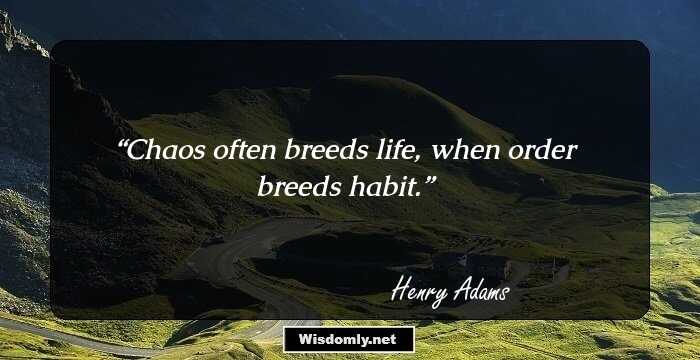
Chaos often breeds life, when order breeds habit.
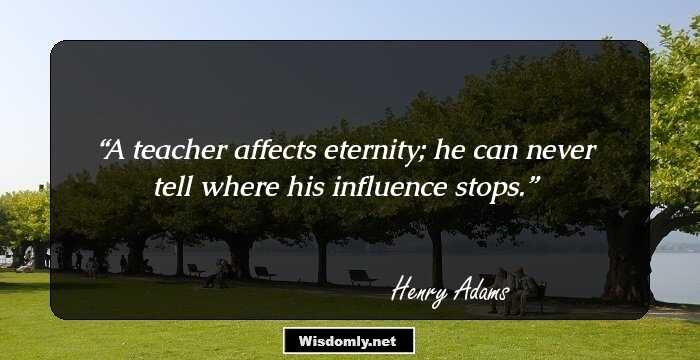
A teacher affects eternity; he can never tell where his influence stops.
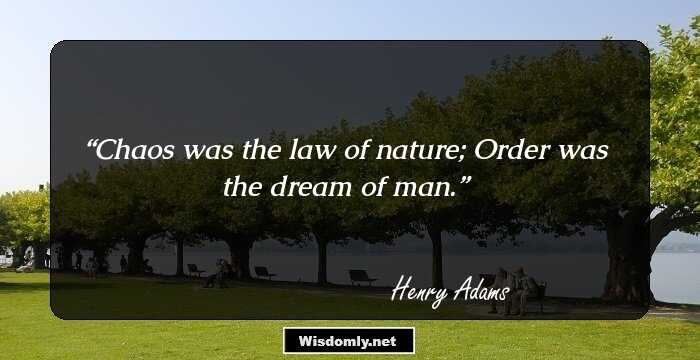
Chaos was the law of nature; Order was the dream of man.
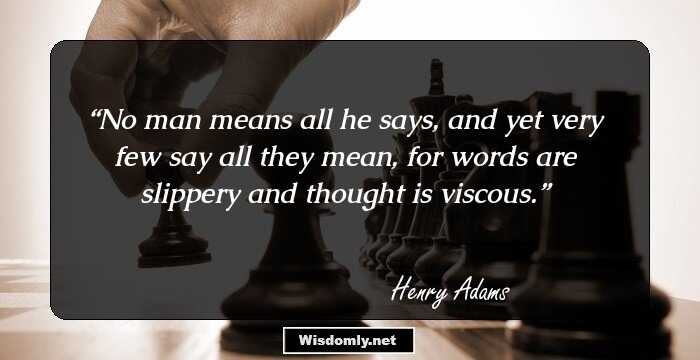
No man means all he says, and yet very few say all they mean, for words are slippery and thought is viscous.
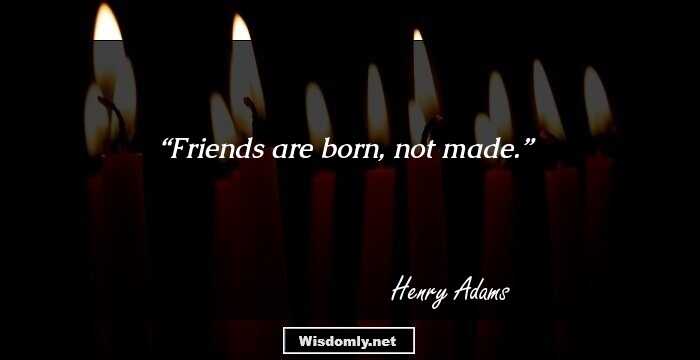
Friends are born, not made.
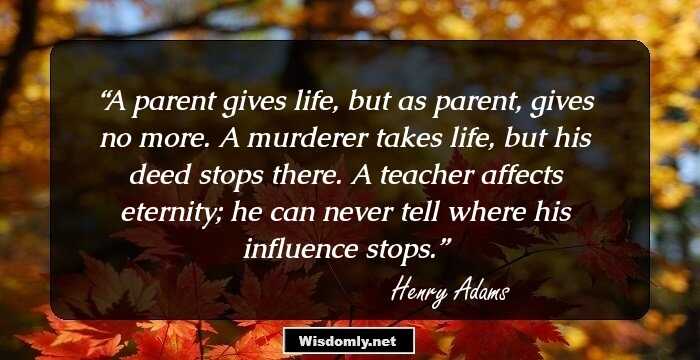
A parent gives life, but as parent, gives no more. A murderer takes life, but his deed stops there. A teacher affects eternity; he can never tell where his influence stops.
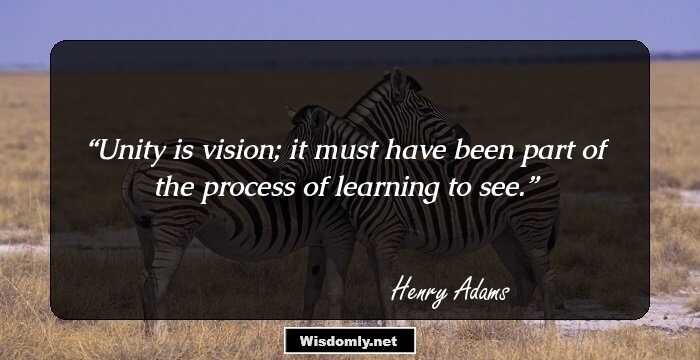
Unity is vision; it must have been part of the process of learning to see.
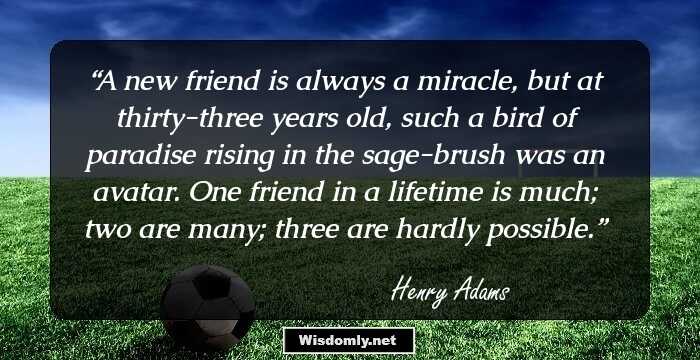
A new friend is always a miracle, but at thirty-three years old, such a bird of paradise rising in the sage-brush was an avatar. One friend in a lifetime is much; two are many; three are hardly possible.
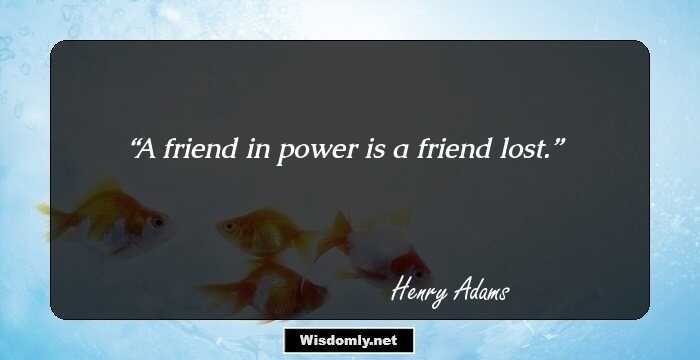
A friend in power is a friend lost.
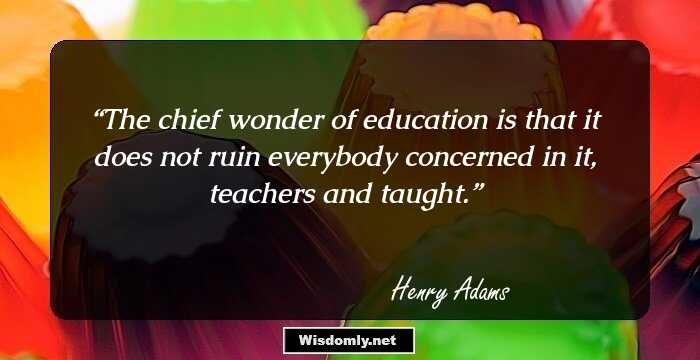
The chief wonder of education is that it does not ruin everybody concerned in it, teachers and taught.
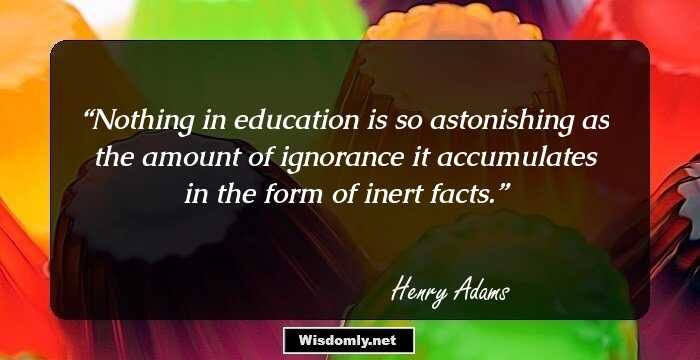
Nothing in education is so astonishing as the amount of ignorance it accumulates in the form of inert facts.
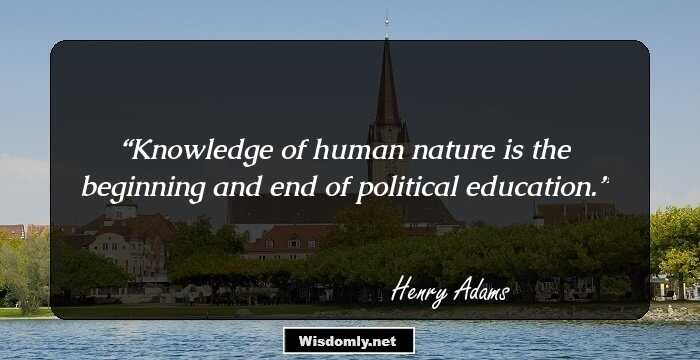
Knowledge of human nature is the beginning and end of political education.
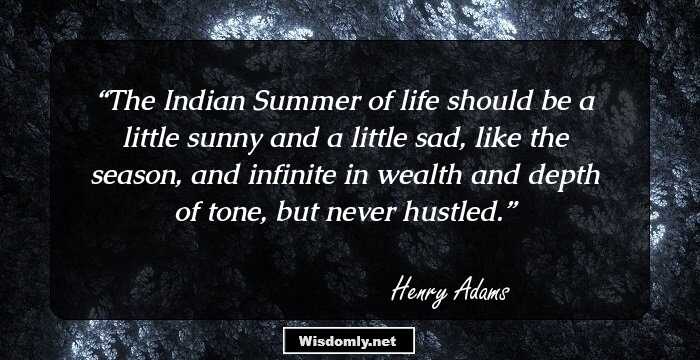
The Indian Summer of life should be a little sunny and a little sad, like the season, and infinite in wealth and depth of tone, but never hustled.
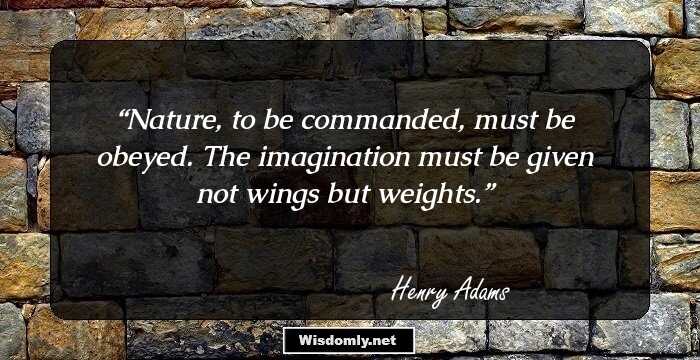
Nature, to be commanded, must be obeyed. The imagination must be given not wings but weights.
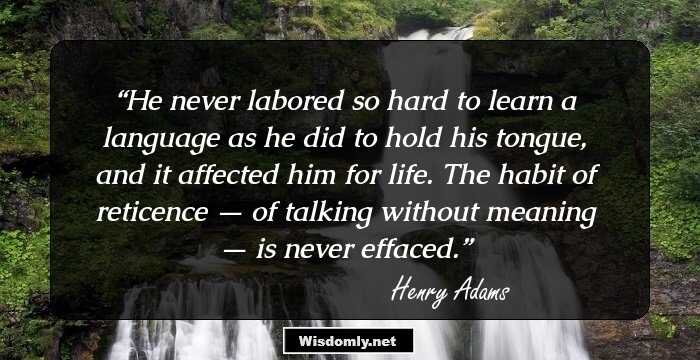
He never labored so hard to learn a language as he did to hold his tongue, and it affected him for life. The habit of reticence — of talking without meaning — is never effaced.
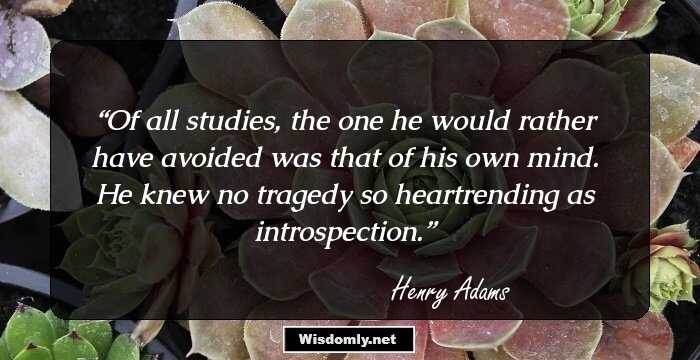
Of all studies, the one he would rather have avoided was that of his own mind. He knew no tragedy so heartrending as introspection.
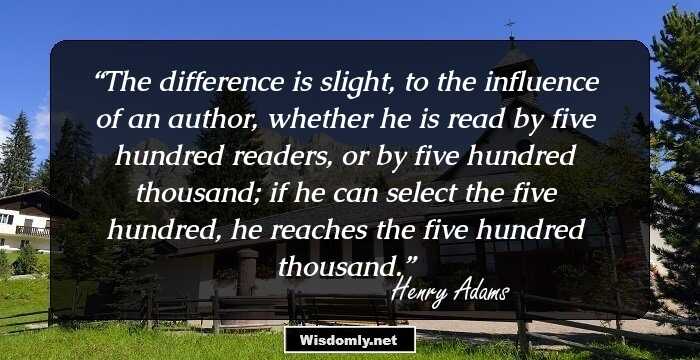
The difference is slight, to the influence of an author, whether he is read by five hundred readers, or by five hundred thousand; if he can select the five hundred, he reaches the five hundred thousand.

The tourist was the great conservative who hated novelty and adored dirt.
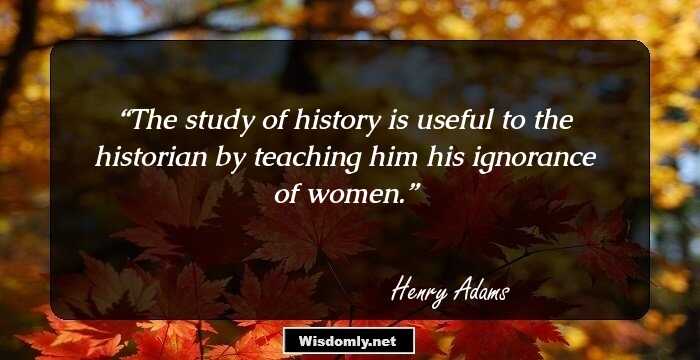
The study of history is useful to the historian by teaching him his ignorance of women.
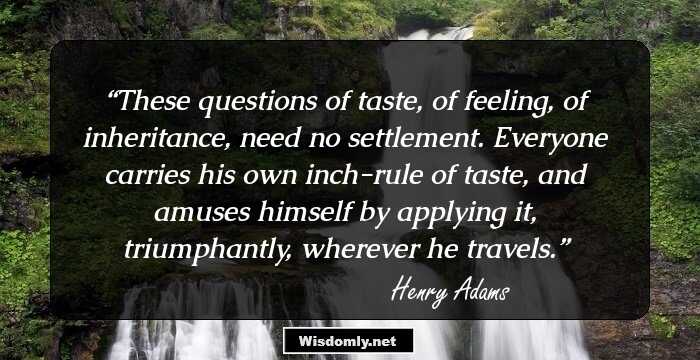
These questions of taste, of feeling, of inheritance, need no settlement. Everyone carries his own inch-rule of taste, and amuses himself by applying it, triumphantly, wherever he travels.
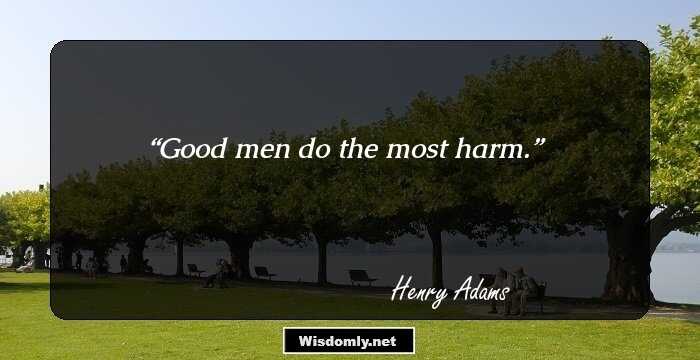
Good men do the most harm.
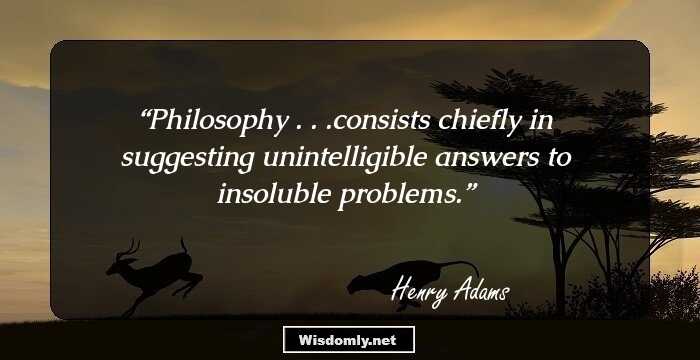
Philosophy . . .consists chiefly in suggesting unintelligible answers to insoluble problems.
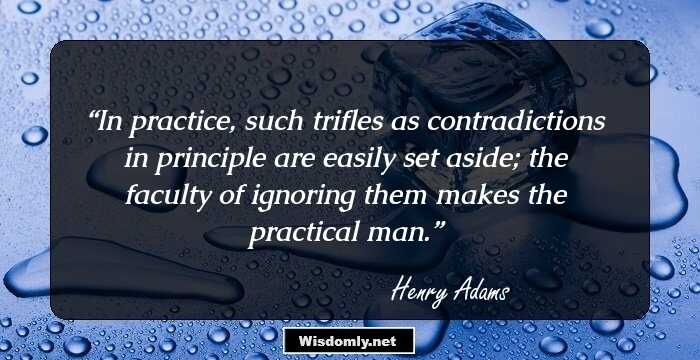
In practice, such trifles as contradictions in principle are easily set aside; the faculty of ignoring them makes the practical man.
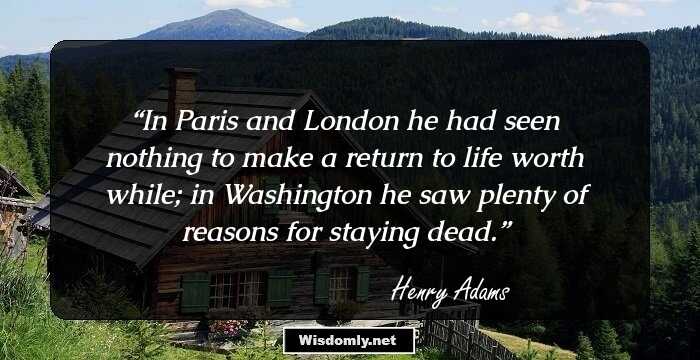
In Paris and London he had seen nothing to make a return to life worth while; in Washington he saw plenty of reasons for staying dead.
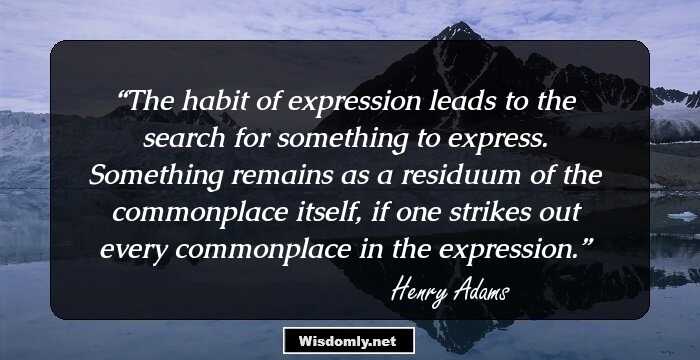
The habit of expression leads to the search for something to express. Something remains as a residuum of the commonplace itself, if one strikes out every commonplace in the expression.
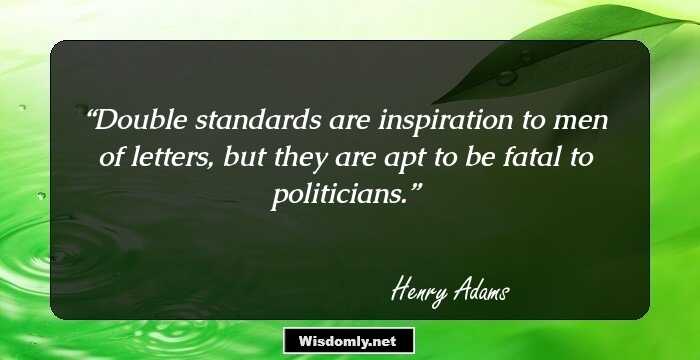
Double standards are inspiration to men of letters, but they are apt to be fatal to politicians.
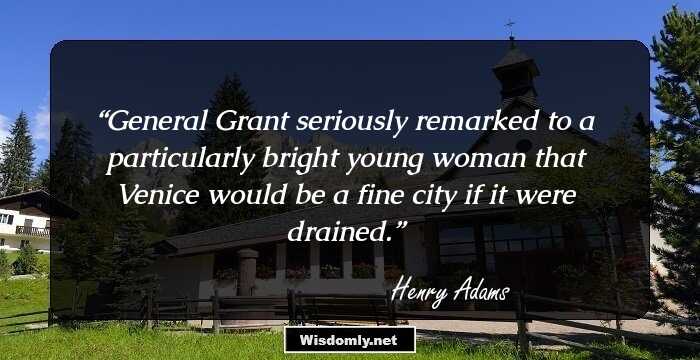
General Grant seriously remarked to a particularly bright young woman that Venice would be a fine city if it were drained.
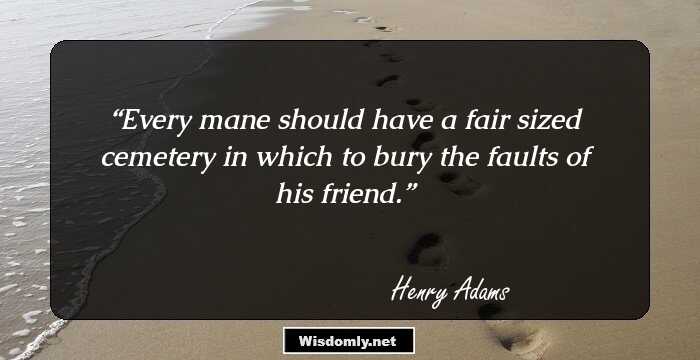
Every mane should have a fair sized cemetery in which to bury the faults of his friend.
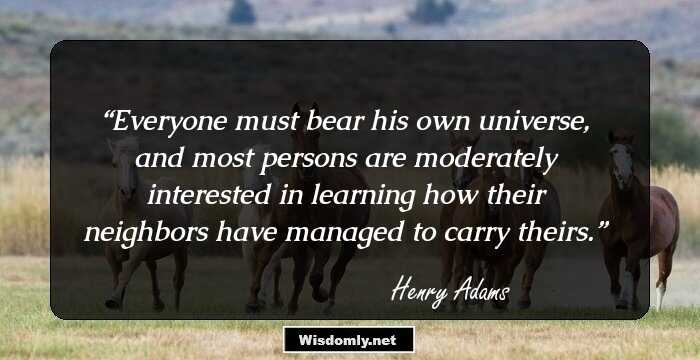
Everyone must bear his own universe, and most persons are moderately interested in learning how their neighbors have managed to carry theirs.

Life is a narrow valley, and the roads run close together










